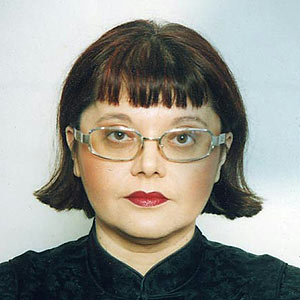log #560: kunstsymposionSuzana Milevska
First Person Plural: The Clusivity of „We"
The question what are the implications behind the use of "We" when it is used by
the non-immigrants and non-refugees bothers me for a long time. More precisely, I want to
discuss the difference between "saying" and "doing" in the use of the
first person plural, or who is included and who is excluded from this statement.

(©
SUZANA MILEVSKA)
Unlike some other and mostly non-European languages,
the English language does not allow an exclusive form of the first person plural pronoun
(a precise differentiation in grammatical terms between all inclusive "we" and
"we" that excludes some of the addressees) so I want to argue that the use of
this statement should be questioned depending on the context and position from which it is
uttered. It is clear from the outset that the phrase is meant to be a rhetorical
self-identification with the "other" and it is supposed to express solidarity
and compassion with the people who are put in a position of "secondary" citizens
from diasporic and other communities (e.g. homeless, travellers, Roma, legal or illegal
immigrants, or refugees) and do not have access to all rights as the other citizens
although they are entitled.
Ever since Hannah Arendt entitled her essay "We
Refugees" (1943) it became very common to use such a "self-inclusive" and
"all-inclusive" phrase in texts that address issues as identity, collective
identity and critical views towards the political differentiation between different
peoples. However I want to argue that there is a certain concealed privilege, exclusivity,
appropriation and a patronising position in this "we" so who is entitled or not
to utter the "we" is one of the major issues and this has nothing to do with the
ethnic, national or class background (the risk of essentialisation lurks behind any
exclusivity).
-- [20.10.2016: Lecture &
Debate] --
Dr. Suzana Milevska is a theorist and curator of
visual art and culture from Macedonia. She was the first Endowed Professor for Central and
South Eastern European Art Histories at the Academy of Fine Arts Vienna and currently is
the Principle Researcher in the Horizon 2020 project TRACES, Politecnico di Milano. Her
research and curatorial projects are based on the urgent need for a postcolonial critique
of hegemonic power regimes of institutional representations of marginalized communities in
the region of South Eastern Europe and include various feminist, participatory and
collaborative artistic practices and art projects by artists with Roma background.
Milevska holds a PhD in visual culture from Goldsmiths College London. She initiated the
Centre for Visual and Cultural Research in Skopje (2006-2008), and the Call the
Witness–Roma Pavilion (Venice Biennale, 2011). She taught history and theory of art at
Faculty of Fine Arts, Skopje (2010-2012) and lectured at The Chicago School of Art
Institute, Columbia University, Goldsmiths College, Oxford University, KIASMA-Helsinki,
TATE Modern and other institutions. She published the book Gender Difference in the
Balkans (Saarbrucken: VDM Verlag, 2010) and edited the readers The Renaming Machine: The
Book (Ljubljana: P.A.R.A.S.I.T.E. Institute, 2010) and On Productive Shame,
Reconciliation, and Agency (Berlin: SternbergPress, 2016). She was awarded the Fulbright
Senior Research Scholarship, ALICE Award for Political Curating and Igor Zabel Award for
Culture and Theory.

core | reset | home
41•16 |